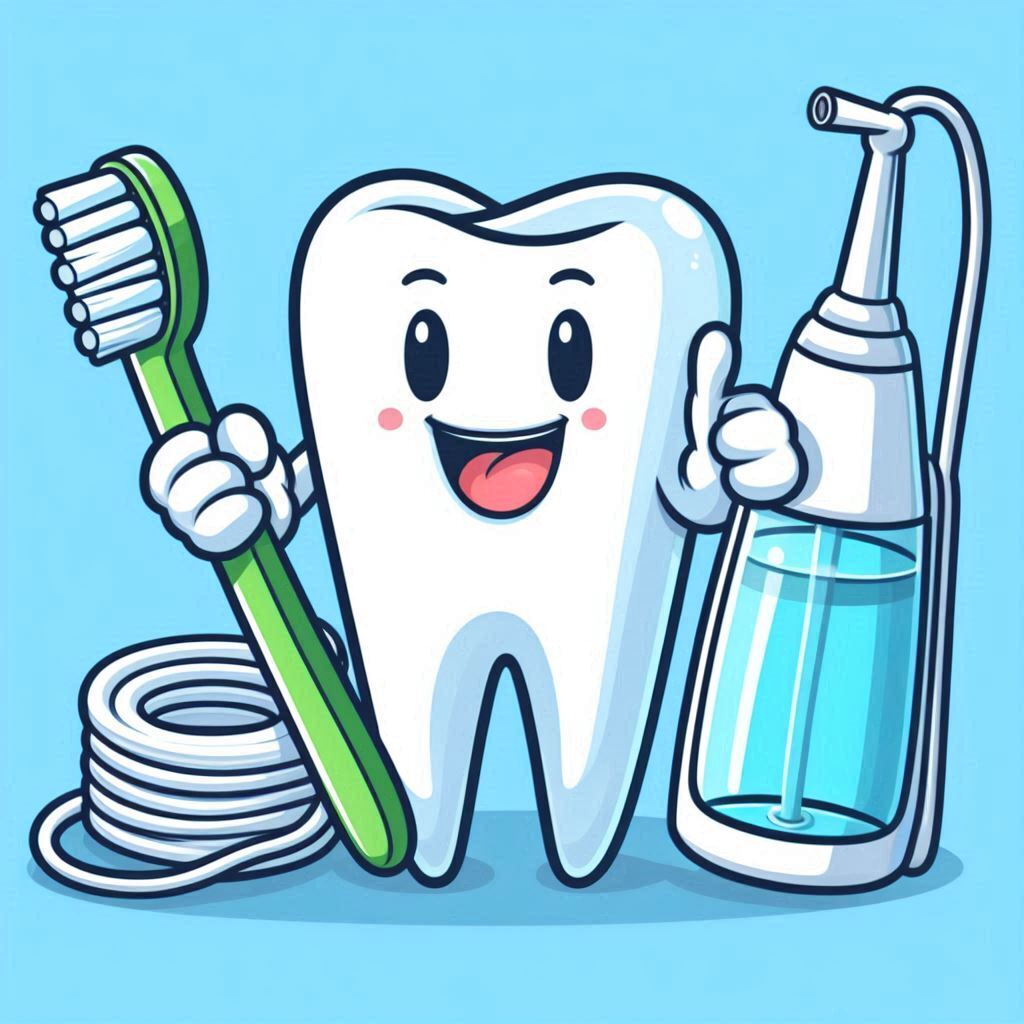Water Flossing vs String – What’s Better?

Did you know that brushing alone only cleans about 60% of your tooth surfaces? Food particles and plaque can build up between your teeth, leading to cavities and gum disease. That’s where flossing comes in!
There are two main ways to floss: using traditional string floss and using a water flosser. This post will explore the pros and cons of water flossing vs string flossing to help you decide which method is best for you.
String Flossing
String floss is a thin nylon thread designed to clean between teeth. It works by gently gliding the floss between each tooth and along the gum line, removing plaque and food debris that your toothbrush can’t reach. Here are some benefits of string flossing:
Removes plaque and food debris
Flossing effectively removes plaque, a sticky film containing bacteria, and trapped food particles that can contribute to cavities and gum disease.
May improve gum health
Regular flossing can help reduce gum inflammation (gingivitis) and prevent more serious gum disease (periodontitis) by removing bacteria that irritate the gums.
Readily available and inexpensive
String floss is readily available at most grocery stores and drugstores, and it’s a very affordable way to maintain oral hygiene.
While there are great benefits of string flossing, there are also some drawbacks:
Requires dexterity and proper technique
Using string floss effectively requires some dexterity and practice to maneuver the floss correctly between teeth and under the gum line.
Can be uncomfortable or cause gum bleeding for some users
For people with sensitive gums, string floss can be uncomfortable or even cause some minor bleeding. This usually improves with proper technique and gentle flossing.
May not be effective for all teeth shapes and spaces
String floss may not be as effective for people with tight teeth or irregular spacing since reaching all areas between the teeth is difficult.
Water Flossing
A water flosser is an electric device that uses a pressurized stream of water to clean between teeth and gums. The water stream pulsates and removes plaque, food debris, and bacteria from areas that a toothbrush or string floss may miss. The benefits include:
Easier to use for some, especially with braces or implants
For people with braces, implants, or other dental work, water flossers can be much easier to use and maneuver than string floss.
May be more comfortable for people with sensitive gums
The water stream from a water flosser can be gentler on sensitive gums compared to string floss.
Can reach deeper below the gum line
The pulsating water stream from a water flosser can reach deeper below the gum line than string floss, removing more plaque and bacteria.
Some highlighted drawbacks are:
Requires purchase of the water flosser device
Water flossers require an upfront investment to purchase the device itself.
May be messy to use initially
It can take some practice to use a water flosser without making a mess in the bathroom sink.
Not as effective at removing plaque between tight teeth
Similar to string floss, water flossers may not be as effective at removing plaque between very tight teeth where the water stream may not reach effectively.
Water Flossing vs String – Who Should Use Which Method?
Choosing between water flossing vs string flossing depends on several factors:
Dexterity and Manual Skills
If you have limited dexterity or find string floss difficult to maneuver, a water flosser might be a more user-friendly option.
Gum Sensitivity
For people with sensitive gums, the gentler water stream of a flosser might be preferable to string floss, which can cause irritation.
Presence of Braces or Implants
Water flossers are generally easier to navigate around braces and implants compared to string floss.
Personal Preference
Ultimately, the best method is the one you’re most likely to use consistently. If you find one method more enjoyable or easier to incorporate into your routine, you’re more likely to stick with it long-term.
It’s best to consult with your dentist to determine the best flossing method for your individual needs and oral health. We at A-Plus Dentistry can assess your gums, teeth spacing, and any specific dental concerns to recommend the most effective flossing technique for you!
Conclusion
Now that you’ve explored the pros and cons of water flossing vs string flossing, you know which method might be a better fit for your oral hygiene routine. Regardless of whether you choose string floss or a water flosser, proper technique is essential to maximize its effectiveness. Your dentist can also demonstrate the proper flossing technique for your chosen method.


Leave a Reply